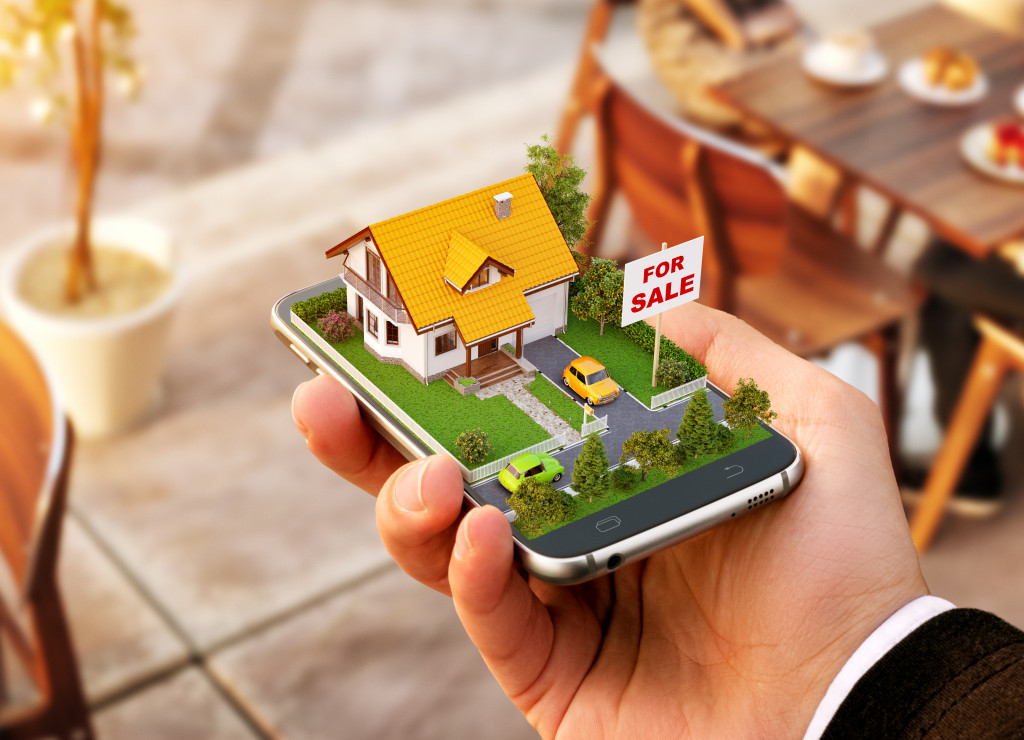The pandemic was a bit more difficult on real estate than on any other industry, except health care, of course. As the pandemic continues to bludgeon many businesses, real estate remains reeling on its tracks. Where is it going? At what point will the impact of the pandemic stop? And even before the pandemic, it is already changing because of the advances in technology.
Pandemic and Technology on Mortgages and Real Estate Sales
You may be wondering how did real estate agents sell properties during the pandemic? How did buyers borrow money when they were asked to stay and isolate themselves at home? The answer to that is technology. Thanks to virtual reality (VR), augmented reality (AR), and extended reality (ER), real estate agents can tour potential buyers around even if they are not physically present. The potential buyers can tour the properties themselves, too, using the proper computer hardware.
Even when applying for real estate loans for commercial uses or even for residential properties, technology has become a saving grace. Because borrowers cannot go to the bank in person, they have to send the documents needed by the bank via email or a secured platform. Loan officers interviewed borrowers via video calls to determine their eligibility for the loan.
Pandemic and Technology on Migration
Do you know many people who moved from the city to the suburbs because of the pandemic? Since the government asked people to stay at home because of the pandemic, they realized the disadvantages of living in small apartments in the city. Kids are locked at home, meeting only their friends and classmates via video conferencing platforms. This situation forced many families out of the city. They started looking at the advantages of having larger spaces like the properties in the suburbs.
This boosted real estate sales in the suburbs while those in the city remained unsold. Businesses that had to close because of the pandemic left many commercial spaces empty, too. The bustling cities turned into ghost towns as families left for the province and businesses transitioned to work-from-home setups.
Such is the impact of the pandemic on people’s choice of living situation. But for those who cannot leave the city, technology played a crucial role in their survival. Thanks to technology, they can work from home, have food delivered straight to their doorstep, and even consult with their physicians via Zoom.

Pandemic and Technology on Work-from-home Setup
For many years, employees have already been advocating for a flexible work arrangement. This gives them more time to focus on their families. Allowing them to work from home empowers them to juggle their careers and households. The pandemic pushed the envelope further. Not only are people working from home because of the pandemic, but they are also running businesses from the comforts of their living areas.
As a result, homeowners decided to buy the empty lot next to their homes. They expanded their properties and renovated their basements and garages. Homeowners turned empty rooms into play areas, classrooms, and home offices. Some of them even renovated and repurposed their garages for long-term office setups.
And if that’s not enough, the pandemic pushed organizations to start thinking about the layout and design of their offices. It’s not enough that you are welcoming employees back again after 20 or so months. The office and store need to be prepared for ventilation, cooling, heating, distancing, and safety protocols.
In this regard, technology had to play a crucial role. Many organizations are now investing in touchless door systems. The less physical interaction there could be among workmates, the better it is for the whole company. Touchpoints have to be eliminated, so that means doors, soap dispensers, dryers are now all automated. The investment hurt smaller businesses, but the alternative is inconceivable—not being able to operate again. For them, following standard protocols in the office is a must for health reasons and an obligation to continue serving their customers.
Sure enough, there is no telling how deep the impact of the pandemic and technology are in real estate. How people now live with the virus continues to be a learning lesson. There are good days and bad days when companies and individuals have to deal with something as challenging and life-threatening as a virus. But with the resources the world now has, it is impossible for society not to learn how to adapt to these changing times. It’s only a matter of some more hits and misses before industries get back on their feet again.
